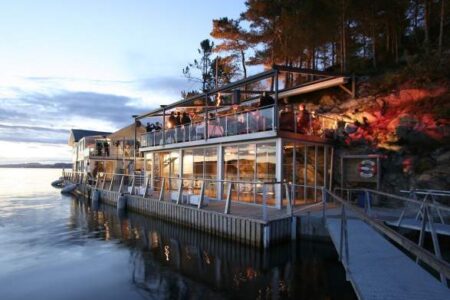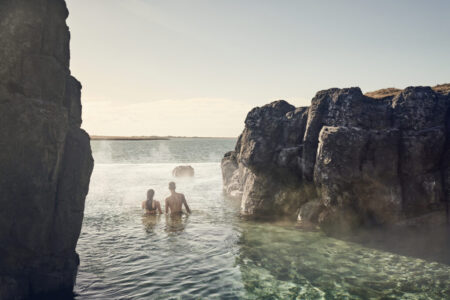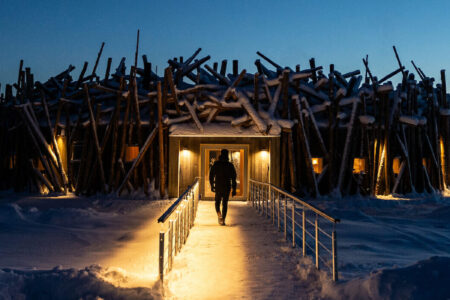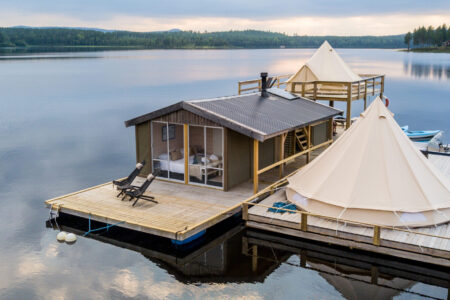We often talk about the wonderful things that can be seen in Lapland – the Northern Lights, the Arctic wildlife – but one thing that is sometimes overlooked is the native people themselves. The Sami have been indigenous to Northern Europe since before recorded history.
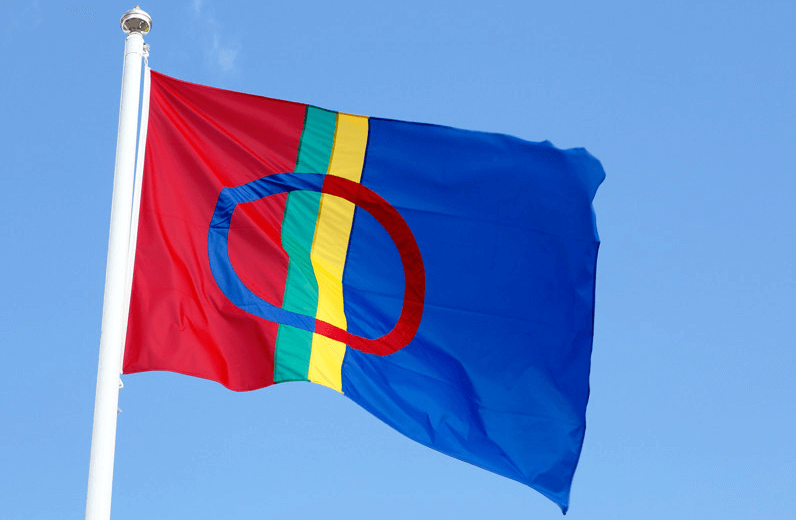
Understanding the Geography of Lapland
To properly understand the Sami we also need to understand their geography. Rather than being a country in the traditional sense, Sápmi is a cultural region that stretches over the four countries of Fennoscandia: Norway, Sweden, Finland and a small portion of Russia. To the Sami people this is Sápmi, but the area has been known as Lapland by outsiders. The red area below highlights the Sami areas of each country:
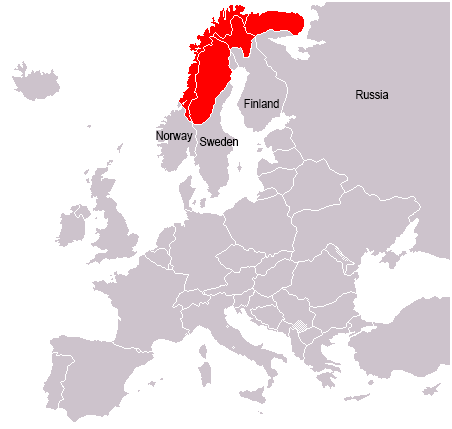
Sami Culture
Despite living across the breadth of four different nations, the Sami people have their own cultural identity and traditions. Since prehistoric times, the Sami people of Arctic Europe have lived and worked in close connection with the natural world, something that stems from times when the Sami were self-supporting nomads. Sami livelihoods have existed both in reliance and in support of their regional wildlife, and this is reflected in many of their traditions. Occupations based in fishing, herding and trapping were and still are common for the people of Sápmi, but perhaps the most traditional occupation that we think of as outsiders is their time-honed tradition of reindeer husbandry.
Sami History
The earliest written documentation of the Sami peoples comes from the Roman historian Tacitus, who, in 98 AD, wrote of a people in Thule (a classical era term for far-Northern Europe, though now considered to be applied to what we now know as Norway) who wore fur clothes, hunted reindeer and travelled with skis. Since the Sami language has only been a spoken language, all the historic documentation written about the Sami people has been written by people other than the Sami themselves.
Centuries later in approximately 890 AD the Norwegian seafarer Ottar described how the Sami lived with domesticated reindeer that they managed in herds, while new archaeological evidence continues to push supported dates for the domestication of the species further and further back.
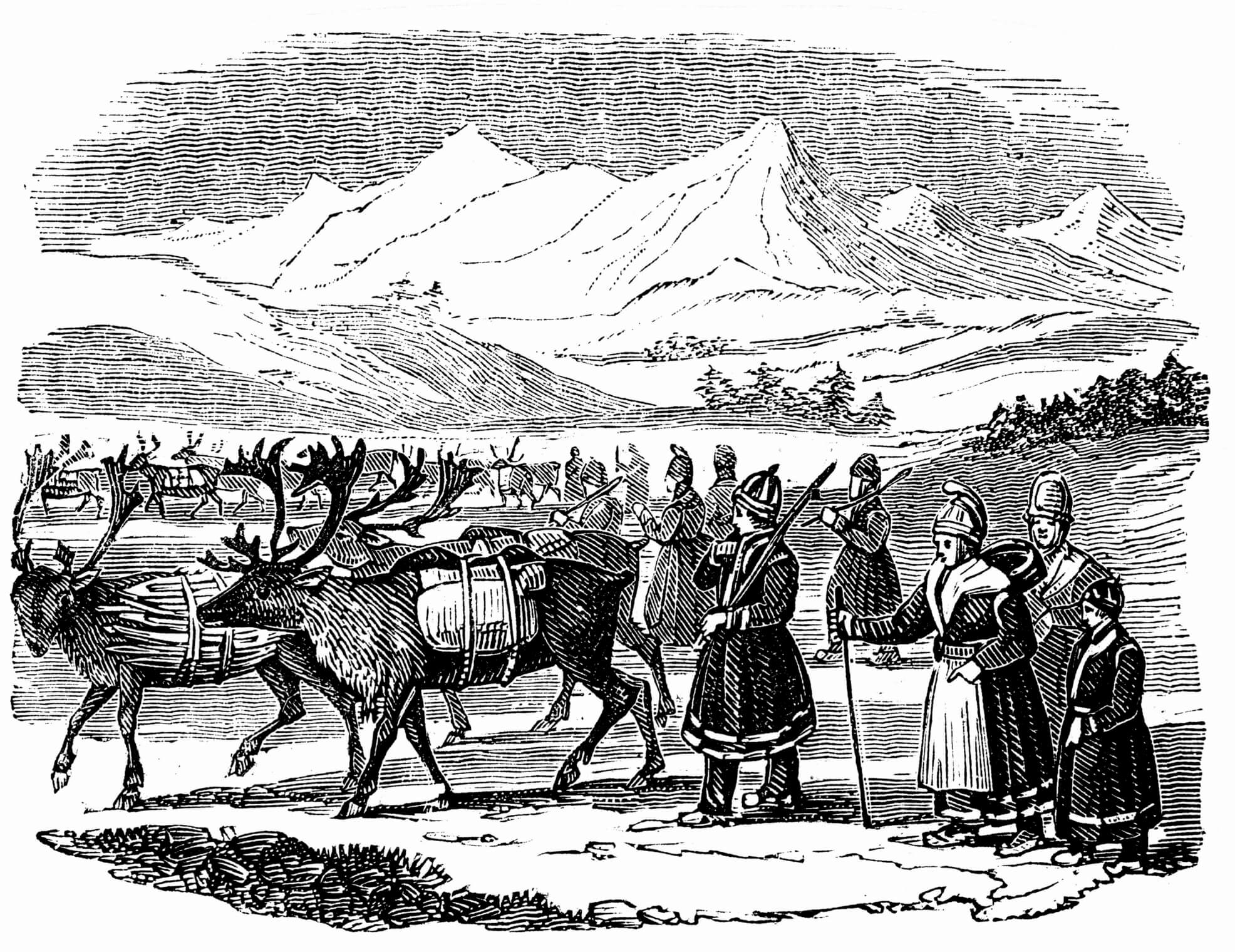
A 19th century picture of a Sami reindeer herding group
From the 15th century onward, the Sami people came under increasing pressure to assimilate with the culture and society of whichever country they were a part of. These pressures further intensified in the 19th and early-20th centuries and continue to this day. Industrial interests like mining and forestry continue to threaten Sami reindeer herding land and sustainable life in the North. However, more recently there have been renewed efforts to promote and protect Sami culture and livelihoods, through channels such as tourism.
The Sami Today
The reconstruction following World War II brought with it an increased modernisation in what were once traditional Sami territories. Following this, more and more Sami people chose to or had to integrate with the modern ways of life within Norway, Sweden and Finland.
Today only a minority of Sami now work with reindeer husbandry, while small groups work as fishermen and craftspeople, while others use their skills to directly contribute to the regional tourism industry. Thanks to this, it is very possible to arrange a holiday that encompasses an authentic experience of the quintessential elements of Sami life. Sami tourism is the best way to learn more about Sápmi and Sami culture from the people themselves. Our Sami Arctic Experience package is a perfect example of such a holiday. This fantastic trip will take you from Norway to Sweden on an exciting journey through Lapland that combines local Sami activities with the chance to see the Northern Lights.
Visit Lapland and Experience Sami Life
There’s no better way to experience Sami life than by doing so first-hand with an authentic experience with the Sami people themselves. Find out more about our Sami Arctic Experience package or get in touch with us to talk to us directly about your Sami holiday.

